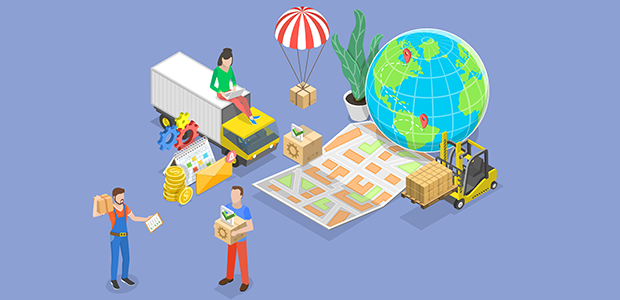
As SMEs face sourcing challenges, AI and B2B marketplaces are changing the game
European small and medium-sized enterprises (SMEs) are operating through turbulent times. Rising raw material costs, labour shortages, and increased competition are pushing some of them to their limits. At the same time, global instability has disrupted supply chains, jeopardising profit margins and the ability of many SMEs to meet market demands.
In this challenging environment, SMEs must find innovative solutions to remain competitive. Optimising sourcing and supply chain management has become a priority to navigate this new reality. But how can they adapt to overcome these obstacles?
The rise of online B2B marketplaces
Faced with supply chain challenges and lack of inventory availability, SMEs are increasingly turning to online B2B marketplaces to diversify their sourcing and discover new products. According to Alibaba.com’s recent Global SME Confidence, more than half of the companies surveyed (52%) are using these platforms to source innovative products.
In addition, B2B marketplaces are no longer just connecting buyers and suppliers, they are integrating cutting-edge technologies, such as artificial intelligence (AI), to make purchasing processes more efficient and personalised. These platforms offer SMEs the ability to source products more strategically, which is essential in an environment where stockouts and delivery delays can quickly threaten profitability.
AI: a key lever for optimising supply chains
As SMEs consider supply chain issues as one of the main challenges of the coming year, the adoption of AI in procurement processes is becoming an essential solution. According to the Global SME Confidence Index, 26% of SMEs are exploring AI tools, including image search, as a significant opportunity for growth.
AI tools can transform e-procurement with the following benefits:
- Automation of routine tasks: AI can automate key processes such as order processing, invoicing, and supplier management. This frees up time for teams to focus on higher-value activities
- Proactive risk management: AI tools can anticipate stockouts, delivery delays, and price fluctuations. By analysing data in real time, they provide recommendations to adjust inventory levels or negotiate with suppliers
- Improved supplier selection: SMEs can more accurately assess the performance and risks associated with each supplier. Algorithms take into account factors such as delivery times, product quality, and collaboration histories
- Identification of new partners: AI makes it easier to find new suppliers that meet companies’ sustainability, cost, and lead-time criteria. By cross-referencing data from different sources, it suggests potential partners that are aligned with the specific needs of SMEs
Moving towards a smarter procurement ecosystem
The integration of AI in procurement is only in its early stages, but its effects are already being felt.
In the future, this technology could transform supply chain management by fostering a more collaborative ecosystem. SMEs and their suppliers will be able to share data in real time, collaborate on forecasts and purchasing strategies, and continuously improve their operations.
In short, AI-based technologies, coupled with the growing use of online B2B marketplaces, enable SMEs to meet their procurement challenges with greater efficiency, speed, and strategy. For companies ready to adopt these tools, the potential for productivity and competitiveness gains is immense.
For more startup news, check out the other articles on the website, and subscribe to the magazine for free. Listen to The Cereal Entrepreneur podcast for more interviews with entrepreneurs and big-hitters in the startup ecosystem.

